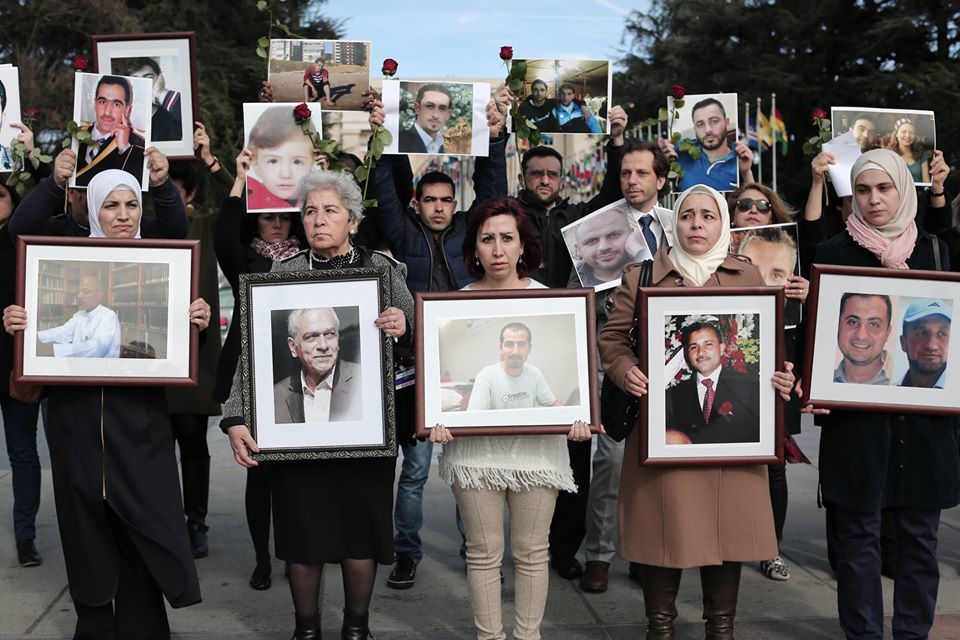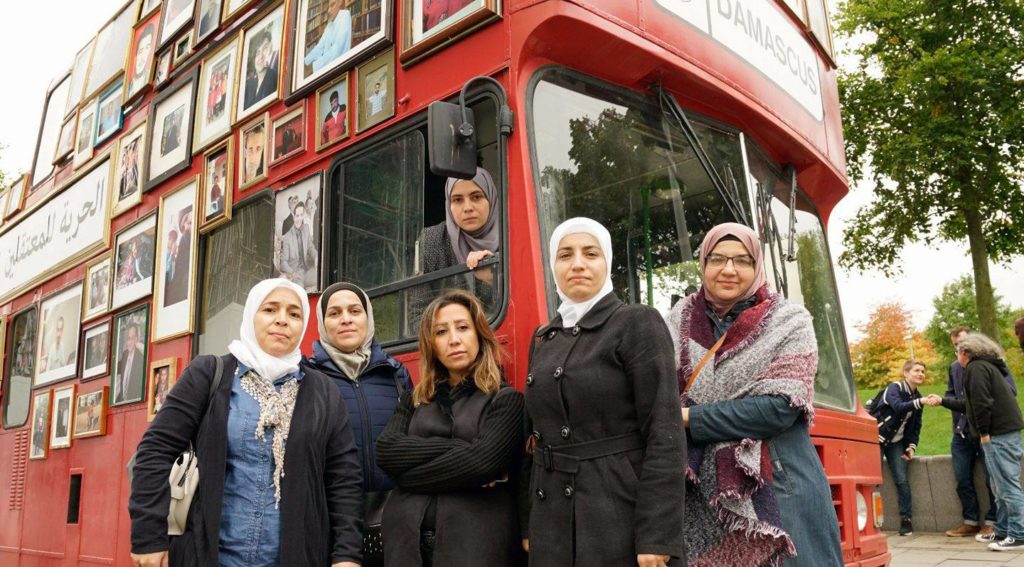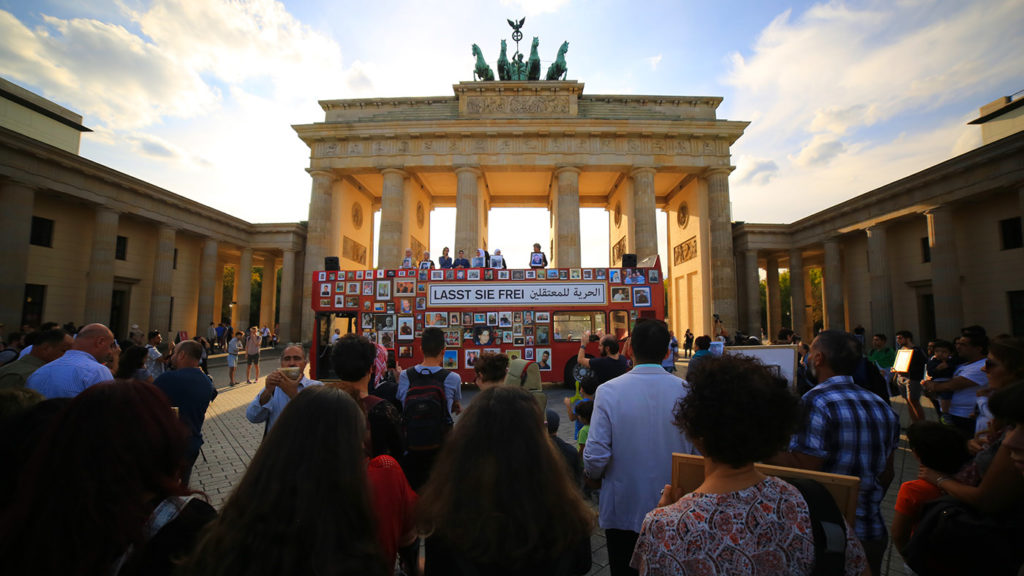Families For Freedom
The Families for Freedom officially launched in February 2017 at the Syrian peace talks in Geneva. Along with other Syrian civil society organisations, we’d been trying for years to have an impact on the issue of detention and enforced disappearance. We knew that this cause was the number one priority for most Syrians, yet there were very little reporting and global public engagement on the issue.

So many families in Syria have detainees, brothers, family, fathers, and husbands. Because of this suffering and this pain, we decided to create a small group to be the voice of detainees, and demand their rights, and not forget them. It is a humanitarian issue above all.
Bayan Shorbaji, Families For Freedom
Our theory of change was that if we could communicate the scale and severity of the forced disappearance crisis—arguably one of the greatest crimes against humanity happening right now—we could get warring sides and governments negotiating the future of Syria to make the release of detainees a priority. We hoped that if we could get the issue of detention on the agenda at peace talks, we might see some progress.
Communicating the scale and horror of the crisis was not easy. The “Caesar photos” that had been leaked from Syrian prisons were too brutal and graphic, and the stories of torture that survivors were telling were horrific. People felt helpless and weren’t mobilising on the issue. Families were scared to speak out about their imprisoned loved ones in case their activism and their advocacy increased their loved ones’ torture or likelihood of being executed. These obstacles meant it was hard to get international focus on detention and enforced disappearance, which of course suited those responsible.
One day in a workshop organised by the organisations Dawlaty and Women Now for Development, we met Amina Khoulani. Amina gave a rousing speech about her brothers who were detained in Syria that brought everyone in the room to tears. Along with Dawlaty and Women Now, we approached Amina and other family members we knew of who were prepared to break the silence on detention and disappearance despite the risks. We invited them to come to the peace talks in Geneva in February 2017. There, they would be able to advocate for detention to be treated as a priority and speak to the media and tell their stories.
The five women who came to Geneva decided that they would continue to work together under the name the ‘Families for Freedom’. They wrote their founding statement and their demands within the space of an hour.

Through visual demonstrations, media interviews, and public statements, the Families For Freedom were able to rally people around their demands for freedom and justice for Syria’s disappeared. Other civil society groups and Syrian civilians quickly supported them, which increased the Families’ legitimacy and showed that they had broad support for their demands. They also made connections with other groups representing families of the missing in other countries, such as Bosnia and Lebanon.
The Families were able to get attention to the issue of detention in a way that other groups could not. Although The Syria Campaign had tried to use reports and research about detention and disappearance to move people to pay attention, it was only when the women at the heart of the struggle came together to speak as a movement that people started to listen. Their moral courage was impossible for even the most hard-hearted of politicians or policymakers to deny.

The demands of the Families for Freedom have been covered extensively in the media since their formation, from Al Jazeera to the Guardian and the New York Times. The movement remains one of the most powerful voices advocating for Syria’s disappeared, and it is critical to keeping the issue on the political agenda. The Families also regularly collaborate with some of the other amazing Syrian groups that represent the families of the disappeared, such as the Caesar Families Association and Ta’afi.
Families For Freedom now operates with chapters of women in Syria, Turkey, Lebanon, Germany, and England. It represents more than 2,500 people, and its steering committee is made up of volunteers, including all the founding members. Although it is complex to coordinate a volunteer movement across so many places, and on a topic of the greatest sensitivity and importance, The Syria Campaign is proud that it is still able to support the Families For Freedom, alongside our partners Dawlaty and Women Now for Development.
What we learnt
Building a movement is difficult and time-consuming. But sometimes this painstaking, grassroots movement-building work is the only way to create change and achieve impact.